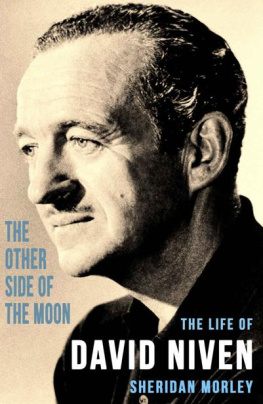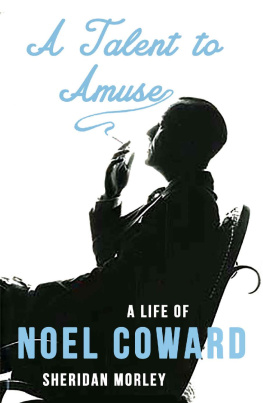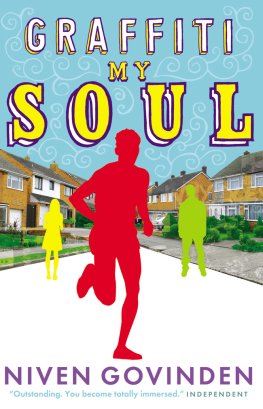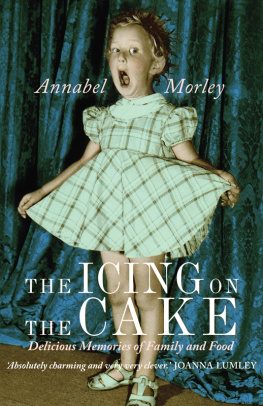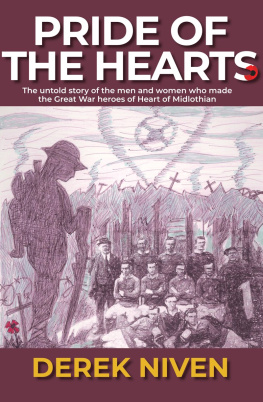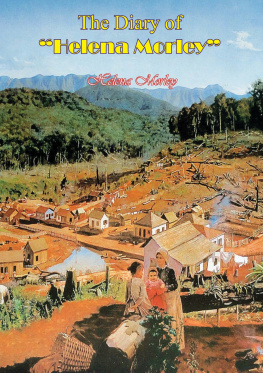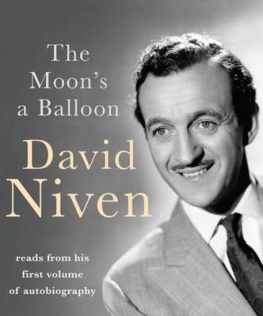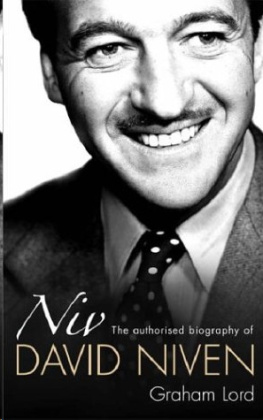Sheridan Morley
The Other Side of the Moon
THE LIFE OF DAVID NIVEN
A highly readable work Niven emerges as gallant and gracious. Chicago Tribune
Sheridan Morley wrote this biography of the consummate on-screen English gentleman after speaking to over 150 of Nivens friends and colleagues (only Rex Harrison refused). The result is a picture which both supports and contradicts the charming vagabond persona depicted in Nivens own bestselling memoirs.
While millions throughout his life were enchanted by Nivens happy-go-lucky charisma and world-class anecdotage, he was in many respects a private figure, haunted by a fear of failure, and a victim of several key tragedies in his personal life. Morleys biography is a warm, appreciative but perceptive account which captures both sides of one of Hollywoods most enduringly lovable figures.
A compassionate account that goes past the blithe persona yet, there is much humorthe actors and his biographersin this notable book Publishers Weekly
Head and shoulders above the average showbiz biography He understands many of Nivens deeper feelings JOHN MORTIMER, Sunday Times
A well-told story the darker side as well as the mask of a complex and perhaps desperate character. He was a life-enhancer off-screen as well as on The Times
Shrewd and pleasing; shows how dark Nivens moon could be ALEXANDER WALKER, Evening Standard
Contents
Acknowledgments
When it was first suggested by my publisher, John Curtis, at Weidenfeld in 1983 that I should consider a biography of David Niven, I wrote rather tentatively to his elder son asking what he thought of the idea, because it seemed to me that without some sort of family cooperation it would be impossible to say more about David than he himself and countless journalists had already said. The younger David Niven and I are roughly of an age, and had last met in California soon after the war when we were both about five; he was, however, kind enough to look up some of my other biographies, including one of his godfather Nol Coward, and wrote back a remarkably enthusiastic go-ahead which included the two things that made me decide I wanted to write this bookAlan agreement to talk to me about his father without any request to see the manuscript before publication, and an invaluable list of the Hollywood telephone numbers of some of his fathers oldest friends.
It is therefore to David Niven Jr that I owe my first debt of gratitude, and although at the time of writing I have no way of knowing whether he will like or even accept this portrait of his father, I hope he does, because without his initial enthusiasm and encouragement it would not exist.
Next I have to thank the three other members of Nivens immediate family who were all equally generous in their agreement to talk to me about a husband, brother and father, again without any demand for control or even sight of the final manuscript: Davids widow Hjordis, his sole surviving sister Grizel, and his younger son James. The opinions expressed in this biography are only theirs when they appear as such in direct quotation; but it would certainly not have been possible to complete this jigsaw of the actors life without them.
First among the non-relatives I would like to thank Barbra Paskin, who did a vast amount of Hollywood research without which I would still be somewhere in the middle of some valuable library checking, and in California Carol Epstein of the Academy of Motion Picture Arts and Sciences was, as usual, equally helpful.
There now follows an alphabetical list of the 130 people who, in Hollywood, New York, Monaco, Switzerland, France and England, were kind enough to talk about David Niven expressly for The Other Side of the Moon, or else to lead me toward those who would. To them all, my deep gratitude:
Sally Adams, Brian Aherne, Margo Albert, Lola Albright, David Rayvern Allen, June Allyson, Don Ameche, Dana Andrews, Ken Annakin, Jeffrey Archer, Lauren Bacall, Frith Banbury, Mary Hayley Bell, Scott Berg, David Bolton, Bernard Braden, Faith Brook, William F. Buckley, Judy Campbell, Capucine, John Carradine, Charles Champlin, Bob Cher, John Cockburn, Claudette Colbert, Theo Cowan, Janet Cowell, Cyril Cusack, Nigel Dempster, Susan Douglas, Lesley-Anne Down, Susan Dunford, Blake Edwards, Douglas Fairbanks Jr, Alice Faye, Christina Ferrare, Geraldine Fitzgerald, Alastair Forbes, Bryan Forbes, Sally Blane Foster, Eva Gabor, Greer Garson, Judy Geeson, Milton Goldman, Farley Granger, Stewart Granger, Cary Grant, Richard Greene, George Greenfield, Rosemary Hart, Doreen Hawkins, Richard Haydn, William Randolph Hearst Jr, Charlton Heston, Wendy Hiller, Bob Hope, Tom Hutchinson, Joe Hyams, John Ireland, Lionel Jeffries, Shirley Jones, Phil Kellogg, Gene Kelly, Deborah Kerr, Evelyn Keyes, Patric Knowles, Henry Koster, James Larcombe, Viveca Lindfors, Rich Little, Joanna Lumley, Patrick MacNee, Joel McCrea, Cecil Madden, Henry Mancini, Delbert Mann, Roderick Mann, Raymond Massey, Katherine Matthewson, Patricia Medina, Alec Mellor, Jack Merivale, John Mills, Roger Moore, Jess Morgan, John Mortimer, Richard Mulligan, Robert Nathan, Ronald Neame, Barry Norman, Hedy Olden, Laurence Olivier, Pauline Page, Janis Paige, Joe Pasternak, John Patrick, Graham Payn, Anthony Quayle, HSH Prince Rainier of Monaco, James Reeves, Jeffrey Richards, Cesar Romero, Toby Rowland, Stewart Scheftel, Gus Schirmer, Dennis Selinger, Ken Sephton, Dinah Sheridan, Peter Sherwood, Don Siegel, Andrew Sinclair, Donald Sinden, Marc Sinden, Maggie Smith, John Standing, John Strauss, Shirley Temple, J. Lee Thompson, Ann Todd, Neile McQueen Toffel, Wendy Toye, Ion Trewin, Michael Trubshawe, Christopher Turner, Peter Ustinov, Paul Vallely, Sam Vaughan, Peter Viertel, Robert Wagner, Eli Wallach, Hal Wallis, Al Weingand, Peter Willes, Teresa Wright, Michael and Patricia York.
I am also indebted to the headmaster and governors of Stowe School for permission to quote from the Niven files there, and to RMC Sandhurst for similar privileges. Express Newspapers have allowed me to quote from the columns Niven wrote for them from Hollywood after the war; and for permission to quote brief extracts from their published memoirs I am most grateful to Billy Milton, Lilli Palmer, Topol and the estate of the late Kenneth More as well as to their publishers. Philip Warners history of the Phantom unit was a valuable source of reference, as was the official history of Stowe School, where both the headmaster and the housemaster of Grafton took considerable trouble in helping me to trace Davids often rocky school career.
Graham Payn was kind enough to let me study the thirty-year correspondence between Nol Coward and David Niven, while Barry Norman was generous enough to let me read the uncut BBC transcripts of his interviews for the Niven programme in his Film Greats series. But above and beyond all the other help I have had from relatives, friends and fellow-journalists (both critics and interviewers in press, radio and television here and in the US), I would like to acknowledge one outstanding and overriding debt. This book is dedicated to the late Michael Trubshawe who, over one long and memorable weekend spent largely in a pub near his Sussex home a few months before he died, pointed me in most of the right directions and asked all the questions that needed to be raised about David as a man, as a fellow soldier and as an actor before giving me a good many of the answers. I do not believe that anybody knew David better in the first half of his life, nor that Niven ever had a more loving friend or more astute critic, and I am only sorry that Michael did not live to see The Other Side of the Moon in print.
I would also like to note here that, since 1974, this is the seventh book of mine to have been edited for John Curtis at Weidenfeld by his senior editor Alex MacCormick. In that time she has also worked with many more talented and distinguished authors; I, on the other hand, could never hope to work with a more talented or distinguished editor.

